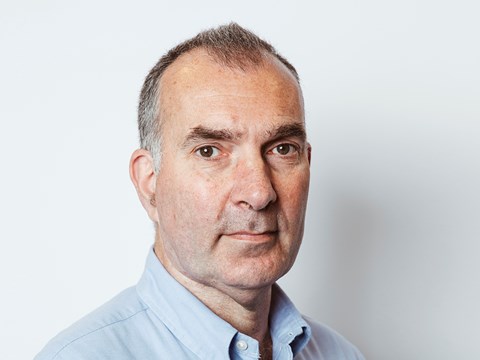A perspective on what’s happening in Agency-land
04 May 2020
For the last 21 years, I’ve sat at the intersection of where brands and agencies meet. This privileged position carries a responsibility to be honest, transparent, do the right thing and say it as I see it. As I’m a Mancunian, this comes quite naturally to me.
In week two of lockdown I wrote a piece on what we were hearing from CMO’s and now I thought I’d share my perspective on what we are hearing from Agency-land.
Creativity
Be it strategic, executional, operational, social, analytical or another aspect of an agency’s expertise, it’s fair to say that agencies are being asked to apply what we call creative capital to their clients’ challenges like never before. Creative capital being the value of creative thinking and its power to transform business.
These demands are being welcomed by agencies, not least because it has given many of them a seat (back) in the boardroom; a place that for many years appears to have been off limits.
Brands, particularly those that are not currently operational, are focusing their attention on a relatively small and senior cohort within their agencies – the strategic Jedi Knights. These people have the superpowers to help in successfully navigating the challenges that business is facing.
The output of most of this work is counsel and advice rather than execution, particularly as we appear to be moving past the stage of brands producing we’re here for you messages. How brands are showing up in all that they do today will be the springboard for how they are received post lockdown and post pandemic. And the advice agencies are giving their clients is having a significant positive and Iong-lasting effect.
When the new norm becomes the old norm and I find myself back at Oxford Circus heading to the office, I’d walk past Starbucks to Pret for my morning coffee, because of how Pret has showed up during the crisis. I’d also consider switching to EE and watching ITV without fast forwarding the ad breaks.
Of course, agencies are not claiming exclusive credit but they are, without doubt, contributing to their clients’ success (and survival) in ways that were completely unexpected.
This brings me to my second observation.
Remuneration
The prevalent commercial arrangements of fees for deliverables measured in hourly rates and time has proven to be simply not fit for purpose as a true measure of an agency’s worth. While this is not new news, the inappropriateness of this model is highlighted by the type of work agencies are currently doing for their clients, as indicated above.
It has been encouraging to hear that, in the best relationships, CMO’s (and often CEO’s) have recognised their agency’s contribution and are remunerating for it accordingly. But we have heard of too many instances in which the agency is not being paid for this creative capital at all.
Other examples of poor behaviour are multiple rounds of scenario planning, turned around in less than 24-hour timescales, that are being met with too-slow decision making, or worst still no decision at all.
There are also instances of payment terms being extended well beyond what has been agreed, at a time when cash is most definitely king, or committed agency fees have been significantly reduced (in one instance by over £1m) but with the expectation of no reduction in resource and service from the agency.
Now, some culpability for what agencies might consider to be unfair commercial arrangements rests with those agencies that shy away from the more challenging financial discussions they should be having with their clients. The attitude that believes we’re investing in the future relationship is to be applauded, but I think agencies can slip into what Victoria Fox, my CEO and business partner, likened to the commercial equivalent of Stockholm syndrome.
But there’s a fair amount of businesses that could be accused of taking an unfair advantage of their agency partners, many of which are SME’s and all of which are trying to the best they can for their clients. They just want to be paid fairly and on time for doing so.
As we say in Manchester…you don’t get owt for nowt!
Commerciality
The harsh realities of business offer no hiding places and agencies are having to deal with these challenges, just as their clients are. There does appear to be a difference between networks and the independent sector.
Both took full advantage of furlough as soon as it became an option. And the networks have certainly been more public in announcing salary reductions, particularly at the senior echelons of the business.
But the networks have gone early when taking decisions on more permanent cost cutting measures, namely redundancies. When the order goes out from HQ, be it New York, Paris, Tokyo or London, there’s nothing the operating company heads can do other than to execute that order.
By comparison, the independent sector doesn’t appear to be as far down that decision-making path, which isn’t to say they aren’t going to get there.
The reasons appear to be two-fold. First, that the independent sector tends to have a greater proportion of freelance talent on which it relies, so its fixed salary cost base is proportionally less. And secondly, anyone who owns their business knows that it’s good practice to have at least three months liquidity to help navigate financially challenging times.
By my reckoning, we’re half way into the three months and there’s no signs of improvement, indeed as far as business and the economy is concerned, I think it’s likely to get worse.
This means that it’s only a matter of time before the independents run out of money and must consider taking more significant measures.
Community
An unexpected positive consequence of the lockdown has been a much greater appreciation for and sense of community, within Agency-land. I’ve been told on numerous occasions that remote working has brought agency people closer together and engendered a greater appreciation of what colleagues do.
Similarly, there’s a generosity of spirit and action amongst competing agencies with offers of help and support where possible. AAR’s small contribution to this has been to host twice weekly agency Zoom Town Halls at which 25 or so agency folk from all types of agencies come together to share stories and experiences and have a bit of a chat.
The generosity of spirit is wonderful to experience and a welcome reminder of the great people who work in this industry. Long may this continue.
What’s to be learnt from this?
I don’t have any neat or (worse) glib summations to all of this. Business is hard for agencies right now, but it’s hard for everyone.
Agencies are doing what they can to help their clients, often in ways that no one had anticipated. It’s great to hear of partnership and collaboration between brands and agencies that’s rewarding, in all senses. It’s disappointing to hear of poor behaviour that results in inequitable business relationships.
And if at the end of this, stronger and longer lasting bonds at a personal, business and corporate level have been established, this will be a good thing.
About The Author




